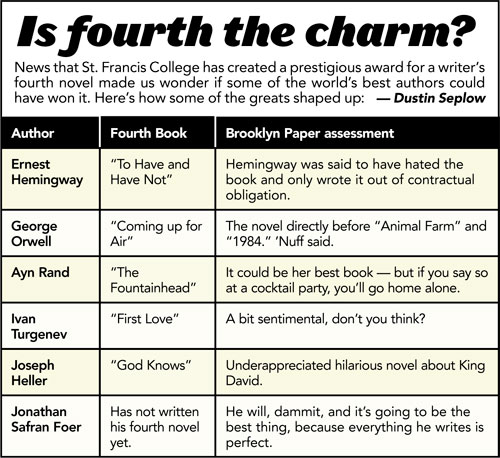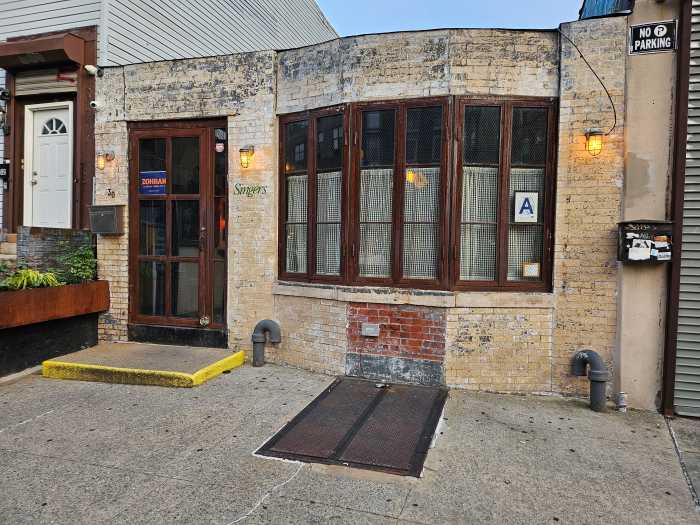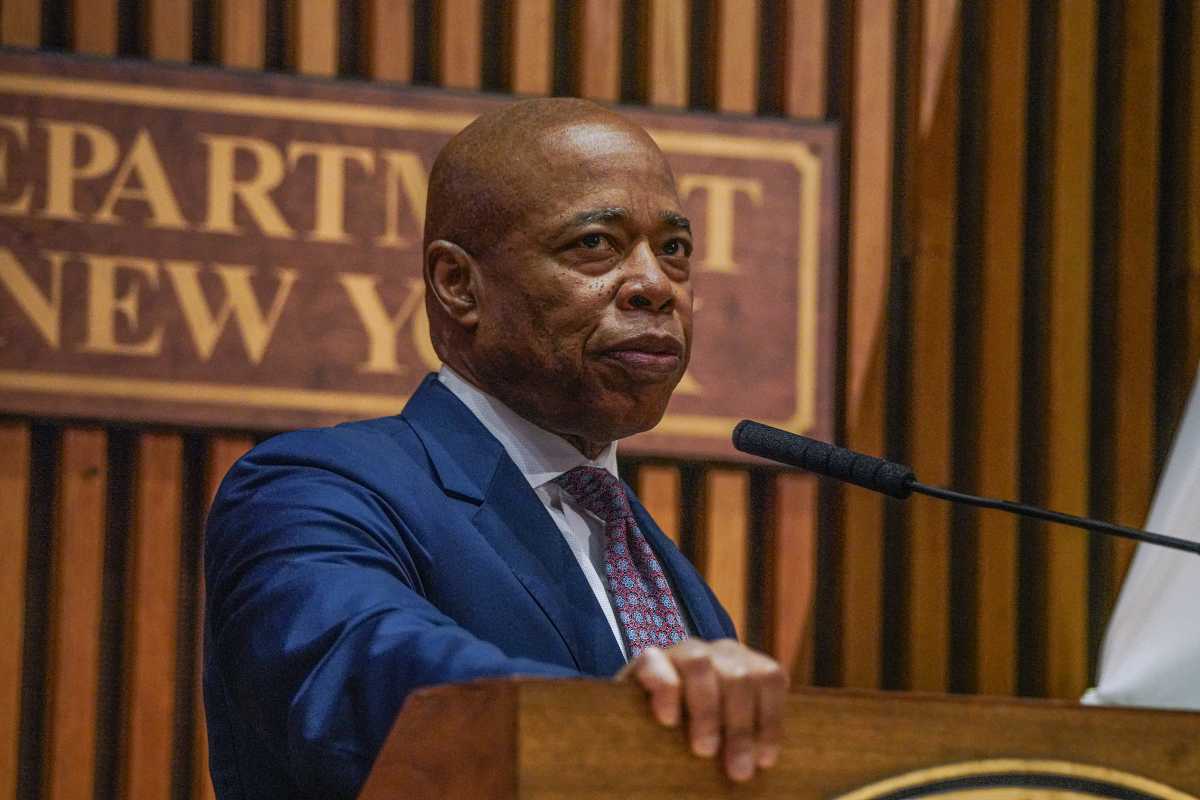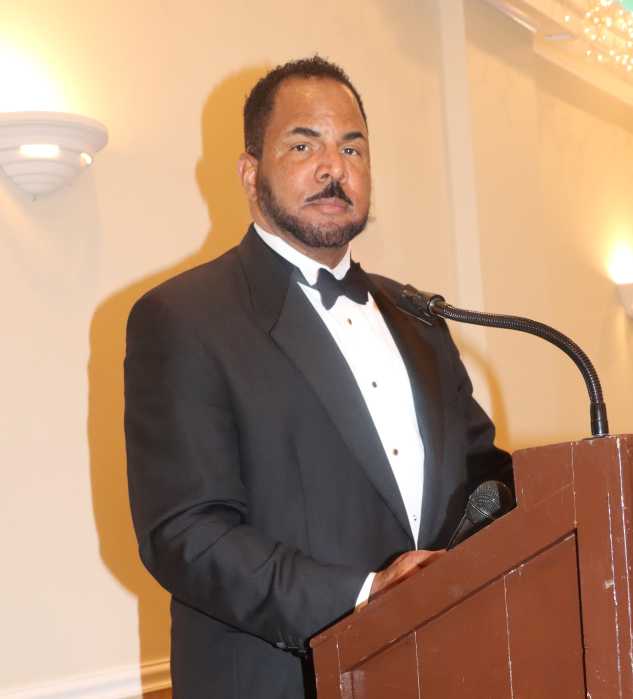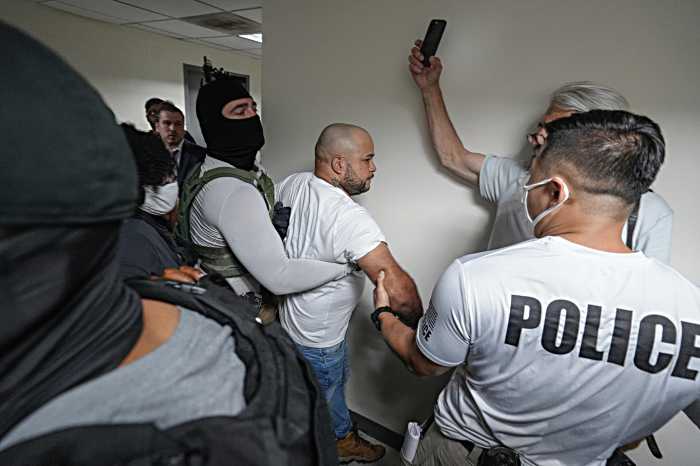For some novelists, the fourth time’s the charm.
That’ll certainly be true for the fourth-time writer who wins a $50,000 prize now being offered by St. Francis College in Brooklyn Heights.
A panel of literary stars including Michael Chabon (whose fourth book, “Werewolves in their Youth,” was critically eclipsed by his fifth, “The Amazing Adventures of Kavalier and Clay”); Jonathan Lethem (whose fifth published novel, “Motherless Brooklyn,” earned him wide praise); and husband-and-wife book-world hotshots Ben Marcus and Heidi Julavits (each of whom have published only three novels) will scan the submissions and select the best fourth novel or collection of stories in July.
Organizers say they didn’t decide to honor the fourth work because it’s necessarily the best — but because four-timers often need the most help.
“There are so many prizes for first novels and so many end-of-life achievement awards, but the time after the third book and before the fourth is a critical moment for a writer,” said Associate English Professor Ian Maloney.
“If you get accepted into a publishing house, it’s typical to get a three-book contract — when that ends a lot of writers have to decide if they want to keep going or go back to another job or teach,” he added.
One writer who could have used some fourth book help — though perhaps not the cash — is Harry Potter author J.K. Rowling, who said that her fourth Harry Potter book — “The Goblet of Fire,” of course — was the most difficult to write.
“The first three books, my plan never failed me. But I should have put that plot under a microscope,” she told Entertainment Weekly in 2000. “I wrote what I thought was half the book, and ‘Ack! Huge gaping hole in the middle of the plot.’ I missed my deadline by two months.”
Other acclaimed writers, like “Invisible Man” author Ralph Ellison and “To Kill a Mocking Bird” author Harper Lee, never even made it to number four.
Yet for a handful of scribes, four is a magic number.
William Faulkner’s fourth novel, “The Sound and the Fury,” is his most famous — and Salman Rushdie’s famed fourth book, “The Satanic Verses,” was so good that the Ayatollah ordered him killed.
Meanwhile, dozens of esteemed writers — from John Updike to Haruki Murakami — have bloomed long after their fourth works.
Book experts say that St. Francis College’s decision to honor a fourth work of fiction with cash, a reading at the Remsen Street college, and the chance to lead a short fiction workshop, isn’t an act of literary numerology.
“It’s silly to think that there’s some magic about number four,” said Michael Strong, an agent at Regal Literary. “Whoever made that decision to honor a fourth-time writer must have been thinking that the school doesn’t want to launch a star or find somebody new, but rather reward professionalism and filter out people who haven’t been at it for a long time.”
Limiting the contest to writers who have already published three works is also intended to ease the burden on the judges, according to organizers.
“What’s great about the selection is they are not going to be deluged by every first novelist in the country — it’s going to be a very selective group,” Maloney said.
For information, visit www.stfranciscollege.edu/literaryprize.


